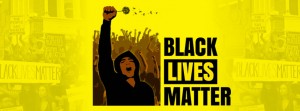When activists associated with Black Lives Matter launched Campaign Zero in September, many policy experts remarked favorably on the policing reforms it encompassed:
Now Campaign Zero has announced a similarly impressive effort to clarify its call for “fair police union contracts.” Its activists researched union-negotiated labor agreements in many jurisdictions and flagged the most damaging provisions. Their efforts are important. These legalistic clauses do tremendous damage to American cities.
Last year in “How Police Unions and Arbitrators Keep Abusive Cops on the Street,” I referenced specific cases to show that “too many cops who needlessly kill people, use excessive force, or otherwise abuse their authority are getting reprieves.” Several common union-contract provisions are particularly egregious, as Jonathan Smith, a former chief of the special litigation section in the Department of Justice’s civil-rights division, explained in a New York Times op-ed in May:
… an officer involved in a shooting often cannot be interviewed at the scene; internal affairs investigators have to wait days to get a statement. Many police departments allow officers to collaborate on a use-of-force report and permit officers to view bodycam recordings before writing a report to “get the story straight.” We found that senior officers rarely questioned a use-of-force report, even if it was incomplete or inconsistent, or used boilerplate language.The ability of police departments to review civilian complaints may also be proscribed by union rules.
In Portland, Ore., a 2012 Justice Department investigation revealed a process in which two-thirds of complaints were dismissed without inquiry. Those that did get investigated were subject to a six-tier review process that took more than a year to complete. Very few complaints were ever resolved.
The union protections also hamper departments’ ability to audit police conduct. This is critical when officers are involved in shootings. In many cities, we found that relatively few officers were responsible for a majority of use-of-force incidents. Yet cities rarely track the data or look for patterns of misconduct.
Smith’s expert analysis maps closely onto the provisions of police union contracts that Campaign Zero has focused on, as a graphic released by the group makes clear:
Campaign Zero
Seven of the cities highlighted in the graphic “have collective bargaining agreements with similar provisions delaying the interrogation of officers being investigated for use of force and erasing the resulting documentation of abuse. Thirteen have agreements that accomplish one or the other,” Steven Cohen writes in The New Republic. “In Austin, Houston, Louisville, and San Antonio, police union contracts go so far as to require 48-hour notice before an interview with an officer can be conducted, a precaution predicated on the utterly baseless claim that the buffer helps preserve accurate memory. Before Cleveland’s recent settlement with the Justice Department, the personnel files of its police were wiped clean every two years.”
In addition, Campaign Zero correctly notes that many police union contracts:
Mandate paid leave for officers who kill
Prevent anonymous complaints from being investigated
Restrict the amount of time an officer can be interrogated for misconduct
Protect the identities of violent officers from public scrutiny
Require cities to pay for misconduct settlements
Prevent civilian oversight structures from being able to interrogate or subpoena officers
There is an urgent need to reform such labor contracts. But police unions have more clout than conscience, and the fight to end provisions that prevent bad cops from being fired will be fierce, even though good cops are among the victims of the status quo: Many citizens have lost confidence in the profession in large part because of the perception that cops protect and serve problematic colleagues at the expense of the public.
Many individual cops don’t fit that stereotype. But the labor organizations that represent them do. Change from the inside would be optimal. Unfortunately, outsiders will likely have to fight for years—if not decades—to reform these contract provisions.
As bad as they are, the required effort is warranted. And the Campaign Zero wing of Black Lives Matter has again distinguished itself as a model of constructive activism.


